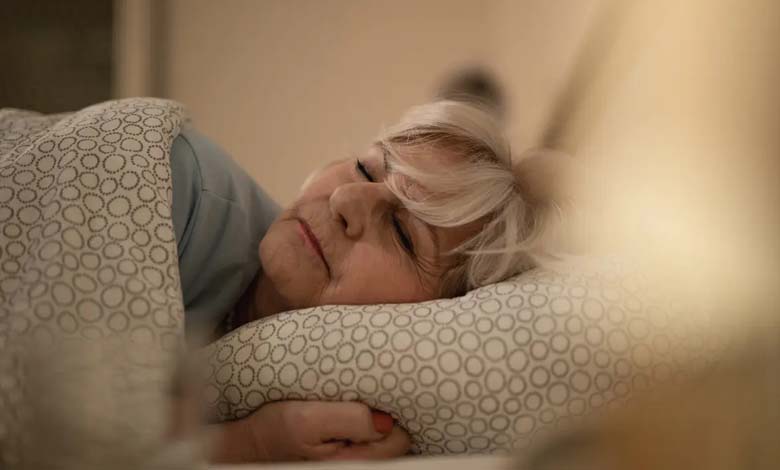Why Do Sleep Patterns Change in Older Adults?

Insomnia is a common issue among older adults, affecting up to 50% of the elderly, according to the Journal of Clinical Sleep Medicine.
-
Sleeping Less Than 7 Hours During Pregnancy Puts Baby at Risk of Growth Delays
-
“Adult Swaddling”: Does it Improve Sleep Quality According to TikTok?
If left untreated, insomnia can lead to serious health problems, such as diabetes, heart disease, depression, and dementia.
Why does insomnia affect older adults more?
As people age, sleep patterns naturally change. Older adults often feel tired earlier and wake up earlier, which leads to increased daytime sleeping, negatively impacting nighttime sleep.
-
How to Get a Good Night’s Sleep During Pregnancy?
-
A Japanese Man Sleeps Only Thirty Minutes a Day… Why?
In a report by A Place for Mom, experts recommend that older adults aim for seven to nine hours of quality sleep each night, as insufficient sleep can contribute to serious health problems like high blood pressure, weight gain, memory decline, and even an increased risk of mortality.
Sleep consists of four stages: light sleep, deep sleep, deeper stages of sleep, and REM (Rapid Eye Movement) sleep.
With age, individuals spend less time in the deeper stages, resulting in lighter and less restorative sleep.
-
This is the “ideal” number of hours of sleep for each age group
-
Phones and Lack of Sleep: “Surprising” Information About Blue Light
Contributing factors to insomnia in older adults include natural age-related changes, medications (such as antidepressants and blood pressure treatments), chronic health conditions (like dementia and arthritis), and lifestyle habits (such as narcolepsy or lack of physical activity). Additionally, consuming caffeine and alcohol, especially before bedtime, can worsen sleep problems, as can smoking and chronic stress.
Identifying insomnia in older adults requires monitoring sleep patterns, and symptoms include difficulty falling or staying asleep, failure to achieve the recommended sleep duration, daytime fatigue, and reliance on sleep aids.
-
How Does Exercise Affect Your Sleep Quality?
-
Why Can’t Some People Sleep Despite Feeling Tired and Drowsy?
Keeping a sleep diary can help track these changes and their impact on overall health.
In more complex medical cases, insomnia in older adults can lead to disruptions in sleep rhythm, such as sleep apnea, restless leg syndrome, or chronic respiratory or heart conditions.
In short, insomnia among older adults is a significant issue that can greatly affect health and quality of life.
-
Why Can’t Some People Sleep Despite Feeling Tired and Drowsy?
-
Warm Milk… Does it Really Improve Sleep Quality?
Recognizing the symptoms, understanding the causes, and making appropriate adjustments can help older adults achieve better sleep.












